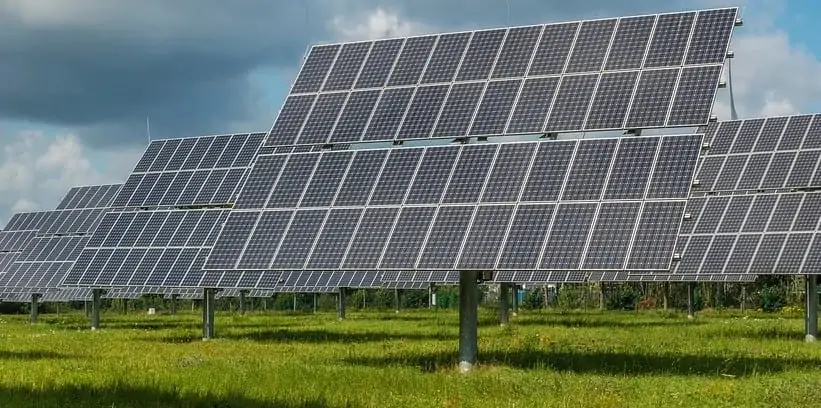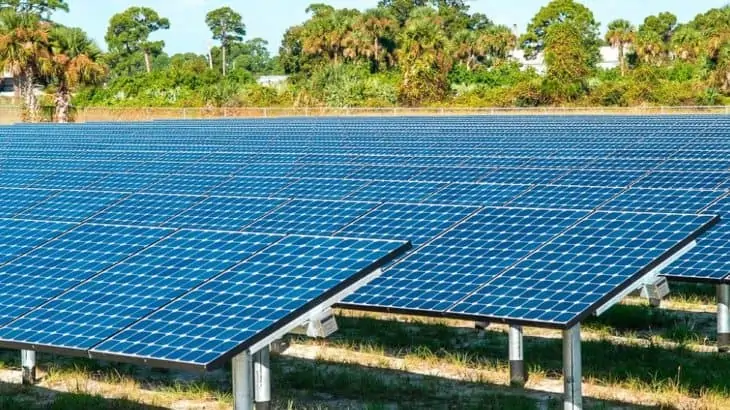If you’re a regular visitor to our site, you know that we’re huge proponents of solar energy. Renewable, environmentally conscious, and free – it’s tough to beat solar as far as “green energy” is concerned.
We’ve written many articles on solar panels, and we love to hear your feedback. One of the most frequent questions we get is “how long will my solar panel last?”. We decided to write a full guide to address this question.
How Long Do Solar Panels Last?
Before we get into the ins-and-outs of solar technology, let’s answer the main question – how long do they last?
Generally speaking, the industry accepted standard lifespan of a solar panel is 25 to 30 years. Past this point, the panels might have degraded past the point where they are efficient producers of energy.
Of course, 25 to 30 years isn’t just some magic number where the panels stop working. The actual useful life of a solar panel will depend on many factors – including how well it was maintained, the durability of the initial design, the materials it was made with, where it was placed, etc. It might be the case that your solar panel will last you well beyond this time frame.
25-30 years is more useful as a general benchmark for how long you can expect a solar panel to continue producing energy efficiently, even though it might be the case that the end result will differ.
Therefore, to get a true understand of how long a solar panel will last, we have to understand how it loses its efficiency. This requires an understanding of a concept known as the “solar panel degradation rate”. We’ll explain this next.
Solar Panel Degradation Rate
A solar panel doesn’t simply reach a point in time where it stops working. The reality is that the panel slowly loses efficiency over time. So, when we say that a solar panel “stops working”, it’s usually the case that it has simply passed a point where it is efficient enough to be useful. This concept is known as the “solar panel degradation rate”.
This rate is based on a study conducted in 2012 by the National Renewable Energy Laboratory. The study concluded that, on average, a solar panel will lose roughly 0.8% of its efficiency each year.
Of course, this rate is not an exact science, and the exact rate for each panel will depend on the brand you buy, the conditions it is kept in, and more. High quality, durable solar panels will tend to have a lower degradation rate.
Let’s consider an example which better clarifies how this rate works:
When you first buy a solar panel, it will operate at 100% output. If the panel has the average 0.8% degradation rate, then it will operate at 99.2% of its original output after the first year. The second year, it will lose an additional 0.8% and operate at 98.4% of its original efficiency. And so on, and so on.
Therefore, even after 30 years, it will only have lost 24% (0.8 x 30) of its original efficiency, and will still operate at 76% of its original output. And while this may be considered less than ideal for many, it may still be a perfectly serviceable panel for your own needs.

The Bottom Line About Degradation Rate
The bottom line is that an understanding of this rate is crucial to understand how long your solar panel will last. Some manufacturers will tell you which degradation rate you can expect when purchasing their product.
Additionally, the solar panel degradation rate can be further influenced by environmental and exterior factors. For example, a panel that is left out in strong winds or heavy snow can be expected to degrade faster.
In the next section, we’ll use this knowledge to give you some tips for extending the life of your panels.
Can I Make Solar Panels Last Longer?
As mentioned, there are many factors that effect a solar panel’s lifespan. Proper installation and maintenance can go a long way into getting the most out of your investment. Here are some tips to extend the life of your solar panels:
Buy From a Trusted Provider
We know, this is an obvious one. We don’t need to tell you that buying higher quality solar panels make them last longer. But there are actually a couple other reasons why this is effective advice.
Many reputable solar manufacturers offer extensive services after the initial purchase. Some suppliers offer installation services, and extensive customer service options. You can call them when there is a problem with your panels, and even request routine maintenance to make sure everything is running smoothly.
It never hurts to have your panels checked out, just to be sure that they aren’t degrading too fast, and that they are operating optimally. Some providers will offer maintenance plans that include regular checkups and maintenance throughout the life of the product.
Keep Your Panels Clean
Keeping your panels in top condition can greatly extend their lifespan. It can also keep them operating optimally. If leaves, dirt, pollen, branches, or anything else has obstructed the panels, they won’t operate as optimally, or for as long. This debris can also damage the panels over time. It’s important to take time to properly clean your panels.
Conclusion
Thanks for taking the time to read through our guide to your solar panel’s life span. As you can see, there are many factors which influence the life of a solar panel, although all panels will degrade at a certain rate. Solar panels won’t last forever, but with proper maintenance and care, they can last for many years.
